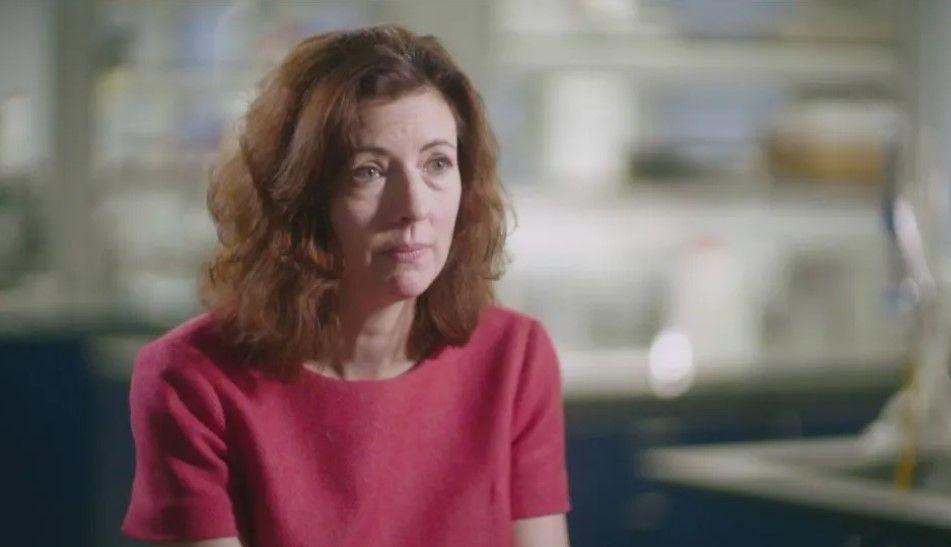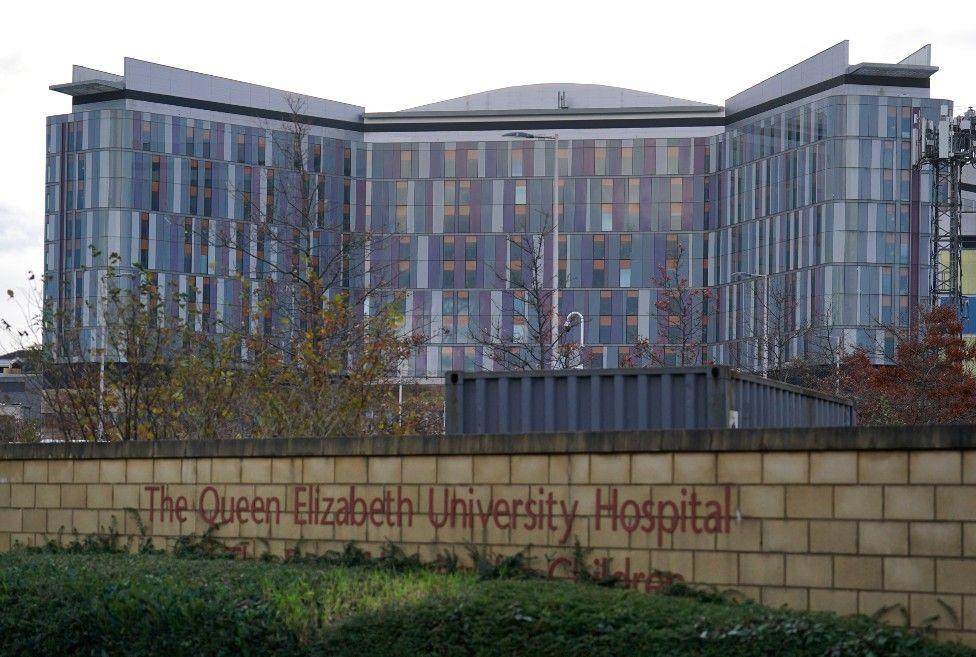Top doctor's 'serious concerns' about patient risks at Glasgow hospitals

Dr Christine Peters, a consultant microbiologist, first raised concerns about the Queen Elizabeth University Hospital in Glasgow in 2014
- Published
A consultant microbiologist has warned she has "ongoing serious concerns" about the risks posed to patients at Scotland's biggest hospital.
Dr Christine Peters works at the Queen Elizabeth University Hospital (QEUH) in Glasgow and said she has no confidence lessons have been learned from the building's well-documented problems.
The senior doctor told the Scottish Hospitals Inquiry she believed a "serious problem of a culture which does not value honesty" was the the root cause of the failings.
NHS Greater Glasgow and Clyde (GGC) said it could give "absolute assurance" to patients and staff that its hospitals are safe.
The inquiry is investigating the construction of the £870m QEUH campus, which includes the Royal Hospital for Children.
It was set up after a number of patient deaths including that of 10-year-old cancer patient Milly Main.
Dr Peters is one of a number of NHS whistle-blowers who have raised concerns about the hospital in the past, including in a BBC documentary.
But in her written evidence to the public inquiry, external, Dr Peters raised a number of recent concerns, including what she described as:
Leaks in the neurosurgical unit and bits of ceiling falling off into a bed space in March last year.
Repeated recent incidents of burst plumbing in Wards 4B and 6A and a failure to "acknowledge and act on" them in what Dr Peters claims poses a real danger to high-risk patients.
Failure to respond adequately to infections and to acknowledge a probable link to the hospital environment.
A refusal to report invasive fungal infections in a high-risk clinical environment. Dr Peters goes on to claim there was "recently a fatal case on Ward 4B".

The Queen Elizabeth University Hospital in Glasgow has suffered years of problems
In her statement to the inquiry, Dr Peters said: "There is a serious problem of faults with the building, but an even more serious problem of a culture which does not value honesty, does not adequately value patient safety, lacks transparency, and prioritises hierarchy at the expense of integrity and expertise.
"I believe this is the core issue and the root cause of all the failings."
The senior consultant claimed that her employer, NHS GGC, had taken the position that there has never been a risk to patients of increased infections due to the building defects but this approach "continue[s] to jeopardise patients".
'Lack of candour'
Dr Peters also raised concerns about how open NHS GGC has been about patient infection incidents.
She said in 2020 she became aware that a child in intensive care had died of a healthcare-acquired bacteria and that one of her colleagues was concerned about a "lack of candour" arising from inferences that the infection was not linked to the hospital.
The same year there was a row over a case of Cryptococcus in a paediatric oncology patient where Dr Peters claimed a colleague had been told to tell the parents that this was a false positive case.
According to Dr Peters' statement, the doctor refused to do this and instead informed the parents that the child had Cryptococcus and would be treated as such.
The child was treated early and recovered, according to Dr Peters.
Last week, the public inquiry heard a claim that the boss of NHS GGC tried to persuade one of Dr Peters' colleagues not to blow the whistle about patient safety concerns.
Dr Penelope Redding, a former clinical director at NHS GGC, claimed the board's chief executive Jane Grant "urged me not to do it".
In oral evidence at the inquiry, Dr Peters said she and her colleagues felt bullied by a senior colleague.
In her written statement, Dr Peters said she was "encouraged to 'pipe down' as otherwise I would find things hard" by a senior colleague as she raised concerns.
The microbiologist said she was signed off sick for three months in 2019 after an incident where another senior colleague shouted and swore at her.
'Our hospitals are safe'
A spokesman for NHS GGC said: "These matters are to be explored in the ongoing inquiry and while NHS GGC continues to co-operate with the inquiry, it would be inappropriate to comment at this time.
"We would however like to provide absolute assurance to all of our patients, families and staff at the QEUH and RHC that our hospitals are safe."
The spokesman added: "Across the campus, our highly-specialist teams treat and support some of the most vulnerable adults, young people and children in the country.
"Despite the sheer size of the campus and complexity of patients, figures consistently show mortality rates at the QEUH campus are in line with and at times lower than the Scottish average.
"A review of available data shows in terms of mandatory surveillance of Healthcare Associated Infections (HAIs), NHSGGC consistently performs better than many other boards across Scotland.
"We are committed to ongoing learning and continuous improvement."
The inquiry before Lord Brodie continues.